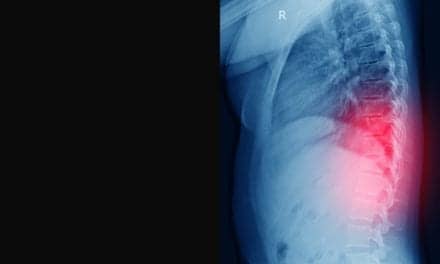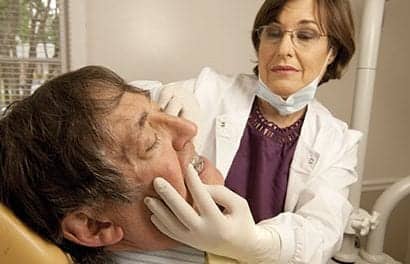CPAP effectively decreases the risk of cardiovascular death in elderly patients who suffer from obstructive sleep apnea (OSA), according to a study conducted by researchers in Spain. The study is the first large-scale study to assess the impact of OSA and the effectiveness of CPAP treatment in cardiovascular mortality in the elderly.
For their study, lead author Miguel Angel Martinez-Garcia, MD, and colleagues enrolled 939 elderly patients referred with suspected sleep apnea between 1999 and 2007, and followed these patients through 2009. Patients were divided into four groups: a control group without OSA; mild to moderate OSA patients without CPAP treatment; patients with severe OSA without CPAP treatment; and patients with any degree of OSA who received CPAP treatment. Complete health histories, including cardiovascular and respiratory data, were obtained from all patients at enrollment and mortality causes were obtained from death certificates. Fatal cardiovascular events included sudden death, stroke, heart failure (HF), cardiac arrhythmias, and ischemic heart disease (IHD). Median follow-up time was 69 months.
The researchers found that untreated severe OSA (but not untreated mild-moderate OSA) was independently associated with all-cause and cardiovascular mortality, as well as stroke and HF mortality, but not with IHD mortality. In addition, they found that CPAP treatment reduced these increased risks of mortality in OSA patients.
Martínez-García said the results were not entirely unexpected, since anecdotal evidence and several smaller studies have indicated CPAP offers improved outcomes in certain patients, notably patients at risk for stroke.
"Our study provides an excellent scientific basis for further studies in this area given a lack of scientific evidence on the impact of sleep apnea and the role of CPAP treatment in elderly patients," Martínez-García said. "These findings clearly support the fact that treatment with CPAP is effective in elderly people and therefore, within logical limits, it must be a treatment that is offered to patients with severe or symptomatic OSA regardless of their age.
"The next step is to assess the effect of CPAP treatment in elderly OSA patients in large, randomized clinical trials," he added. "These studies should explore not only cardiovascular outcomes, but other outcomes such as neurocognitive dysfunction."
The findings were presented at the ATS 2011 International Conference in Denver.




